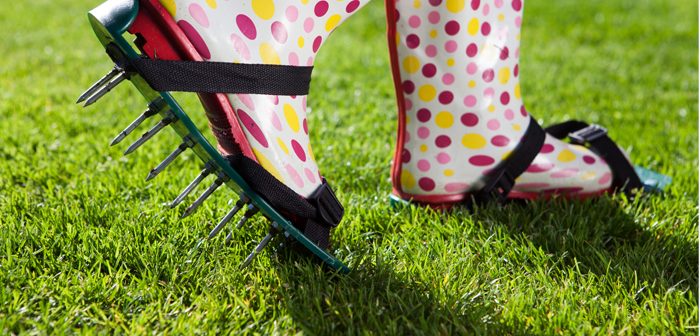Every home deserves to be surrounded by a beautiful lawn, but quality landscaping can cost a fortune. Fortunately, there are a few ways that you can save money on lawn care without too much extra effort. All you have to do is plan your lawn’s design carefully to make sure that you don’t waste any time or money.
Choose Plants Carefully
Plants are living things, and each one has adapted to a specific environment. This is even true of plants like grass, where the difference between each species is almost invisible to the naked eye. You can certainly plant species that are native to other climates in your lawn, but keeping them alive will be an uphill battle. The amount of care that they need will raise the cost of lawn care because they often need special nutrients, protection from the elements, and very careful watering. In most cases, the best results will come from planting species that are native to your area or are from a very similar climate.
There are a few plants that offer special benefits even outside of their native environment. In particular, cacti and other succulents can survive with very little water or care. They’re perfect for arid environments where watering is expensive, but they can save money by reducing water costs in any environment that doesn’t get a lot of natural rain. Some hardy shrubs offer similar benefits.
Timed Watering
Sprinklers and irrigation are never ideal, since the cost of water can add up quickly. If you can’t avoid them entirely, the next best thing is to time the watering as carefully as possible. Watering the lawn when it is hot will cause a lot of the water to evaporate, which wastes it. Watering when it is too cool can cause the opposite problem by keeping the area moist and inviting for fungus and pests. You can dodge both problems by watering the lawn in the morning, since that will let most of the water soak in without evaporating, but the afternoon sun will get rid of any excess.
Use Tall Grass
You can also save money on water by letting your grass grow. Tall grass can support a large root system, which makes it soak up water more efficiently than shorter grass. That means less water gets lost to the ground. That may not seem like a big deal, but it can eliminate one or two watering sessions every week, depending on the climate. In most cases, you should try not to cut off more than the top third of the grass when you mow. When in doubt, err on the side of leaving it long. After all, a second trim is much quicker than waiting for it to grow again!
Try DIY
Hiring workers to do your landscaping and lawn care will cause the price to skyrocket. Keeping your lawn in good shape on your own will take some work, but not nearly as much as many people believe. If you make good use of plants that mostly take care of themselves, such as succulents and some trees, you can focus your efforts on the grass and smaller plants. If you choose native species for those, you won’t need to spend too much time watering or fertilizing them. That leaves mowing as the main task, and there are plenty of lawnmowers that can make even a medium-sized lawn manageable for one person to keep under control.

Cheap Fertilizer
Fertilization is necessary, but most people spend too much money on fertilizer. You can save time and money by doing things the natural way. While fertilizer adds several nutrients to the soil, nitrogen is usually the most important. In the wild, nitrogen enters the soil through nitrogen-fixing bacteria, which live in the roots of a small number of plants, including clover. Mixing some of those plants in with the grass in your lawn will add some variety to it and help to keep the grass healthy. In some areas, that might cover all of your fertilization needs, but you may need to supplement the clover with other fertilizers in others.
You can also save money on fertilizer by turning your organic waste into compost. Simply build a composting heap, and include vegetable scraps, grass trimmings, and other appropriate forms of waste. Once the compost is ready, spread it over your plants once or twice a year to give them a nutritional boost.
Buy in Bulk
It’s easy to buy gardening supplies in bulk, and you can usually save money when you do it. If you need to buy seeds or fertilizer, try to calculate the quantity that you will need for the entire year. Buy the entire supply at once, preferably while you can find a decent discount. You do need to find a little bit of storage space for the supplies, but an adequate supply for most lawns will fit in the average garden shed or garage without too much trouble.
Use Manual Tools
You can almost always cut your costs by doing a little bit of extra works. Motorized lawnmowers and other tools do make lawn care easier, but they can also be expensive. Some of the cost comes from their initial price, but the cost of fuel can also add up quickly. Manual tools don’t have that problem, so relying on them will save money. They’re also good exercise, so they can also help you save money by replacing an expensive gym membership!
Integrate Stone
You should consider adding a few decorative stone areas to your lawn. Stone is a natural material, so it can easily blend in with the landscape and make your lawn look more attractive. It can also save money because natural stones don’t need to be watered or pruned. If you’re careful, you can even pair a large area of stones with a few tasteful plants that can thrive near them to create a beautiful centerpiece that needs very little care.









